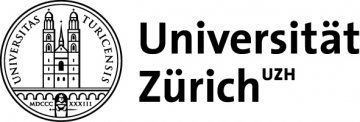Universitat Zurich
— UZH —
With almost 26’000 students and 690 professors, UZH is by far the largest university of Switzerland, offering the broadest range of courses Swiss-wide. In the Shanghai Ranking 2018 for the best universities worldwide, UZH as a whole ranked on place 54, which exemplifies that UZH is one of the top institutions for education and research. The annual turnover of UZH is roughly 1’420 mio CHF, and roughly 315 mio CHF originate from third sources. Together with the Swiss Federal Institute of Technology (ETHZ), which is about half the size (in student numbers) of UZH, the region of Zürich constitutes a very attractive area for students and researchers from all over the world. Consequently, the proportion of foreign students and professors is very high, especially in the area of Life Sciences and Agriculture, which ranks even better in the Shanghai Ranking (rank 25 in 2016) than UZH as a whole. With nine professorships and a highly international scientific staff of roughly 180 persons, the Institute of Plant and Microbial Biology (IPMB) is one of the larger institutes of the University of Zürich. IPMB specializes mainly, but not exclusively, in the investigation of molecular aspects of plant physiology, plant development, plant genetics and diversity, plant-pathogen interactions, microbiology, limnology and evolutionary ecology. The involved UZH group has a long and successful track record of research with impact in the field of wheat and cereal genetics, genomics and resistance gene isolation and characterization. Novel molecular tools for the work in the large cereal genomes have been developed in this group in the last two decades.
Role within AGENT
UZH will be in charge for DNA extraction of Swiss gene bank material. It will contribute to WP3 (task 3.3) in phenotyping rust and powdery mildew resistance. Furthermore, it will analyse by GWAS specifically powdery mildew resistance in WP4. UZH will also be responsible for selection and multiplication of lines with molecularly known resistance genes for DNA extraction and genotyping. The resistance gene haplotypes will be compared with haplotypes in gene bank material to determine the presence of known vs. novel genes the gene bank accessions (WP4).
Main contacts


